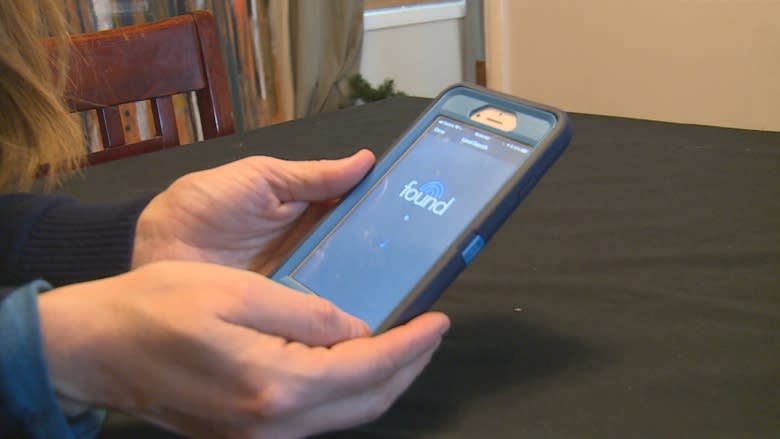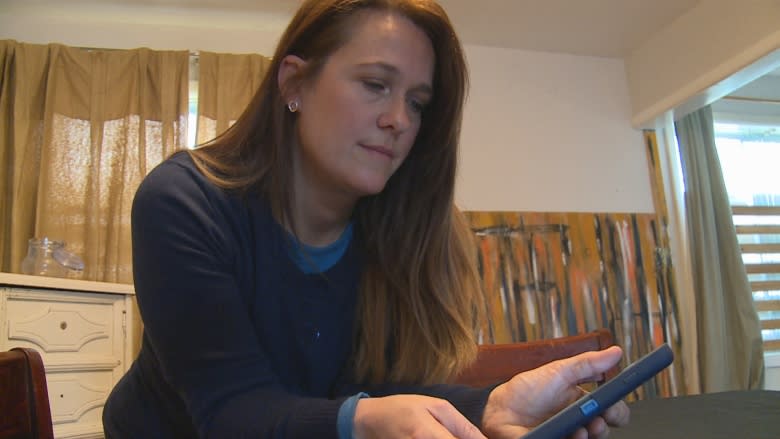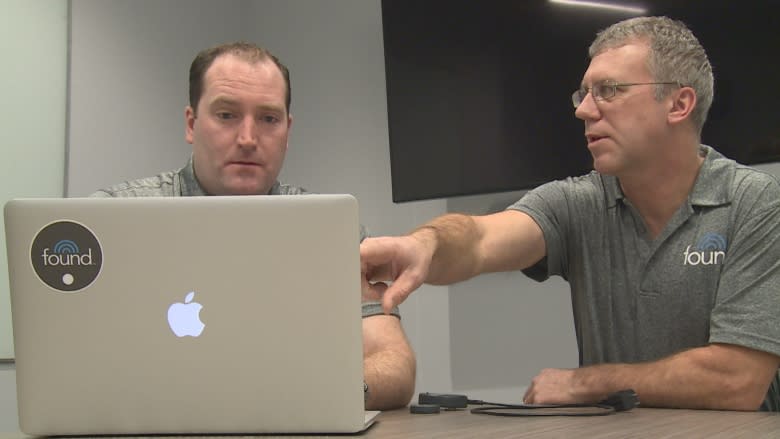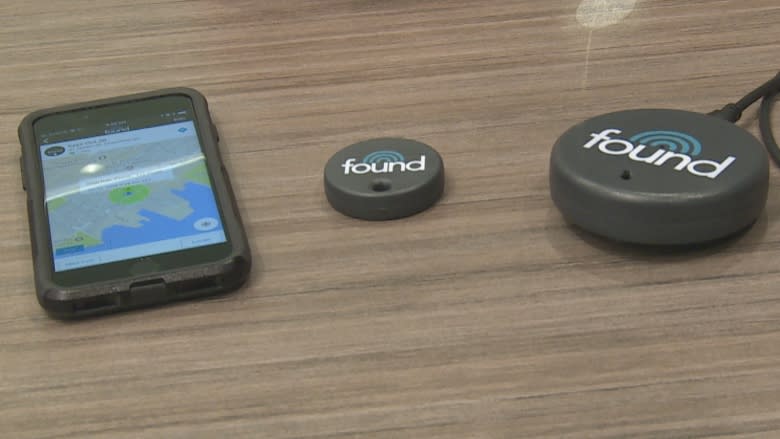Autism Society of P.E.I. helped by pilot project tracker
Krista MacGillivray spends a lot of time thinking about how to keep her 11-year-old son safe.
He's on the autism spectrum and is non-verbal.
"We use extra locking devices, we watch him really close," MacGillivray said.
"He is very keen on scooting out the door if it's not secured."
MacGillivray is taking part in a month-long pilot project with a location tracking device called Found.
"I think it is good for for all neurotypical children and of course, children on the spectrum are particularly vulnerable and with the possibility of flight risk, it's just an extra added security," MacGillivray said.
"Another tool in your tool box if you will, peace of mind. I thought it was a great fit for family."
Found Network is providing the equipment free of charge for the participants of the pilot project.
It uses a small waterproof disc called a tag. Homes and businesses would set up a Found locator that is plugged into a Wi-Fi device. The tags are discovered when entering into range of the locator.
Modern age Block Parent network
The free app will pinpoint that time and spot whenever a tag goes past any Found locator in the city.
That means users like MacGillivray can see exactly where their tags have gone.
This allows her to put a tag in her son's clothes or backpack and have an electronic set of eyes with him.
Charlottetown-based start-up company Found Network is running the free pilot project in conjunction with the Autism Society of Prince Edward Island.
Owners Tim MacEachern and Bruce MacDonald are hoping to get 80 different families in a single Charlottetown neighbourhood for the pilot project.
They are hoping to build a network of locator devices in the city because that increases the places that tags can be identified, increasing how different people could use the tags.
"We've heard already from people taking care of people with Alzheimer, pet owners, people with valuable goods that just want peace of mind that will reduce the likelihood of a theft or increase their odds of a recovery in the event that it was stolen," said MacEachern.
Many uses for tracking devices
The tags themselves have been designed with the busy family in mind with a year-long battery life.
"We want to make it convenient that you don't have to remember to charge that every week," MacEachern said. "And for parents who have many kids and a busy household, often that's the first thing that you forget to do, so the actual device is not working in the times that you actually need it."
MacEachern said that when the pilot project is over, parents will be able to either keep just the locator stations to help contribute to the overall network or pay a small monthly fee to continue using the tracking services themselves.
Taylor Jenkins picked up her tags on Friday and said a network like this will be especially useful as her four-year-old son gets older. He is also non-verbal and on the autism spectrum.
She said he's a flight risk and she worries about it every day.
"I can pick him up now. He is a pretty strong little guy. But I do worry, when he's 10, 12, 14, that won't be the case," said Jenkins. "So it's something that I worry about."
Found Network said that when the pilot project ends a portion of all revenue will go directly to support the Autism Society of P.E.I.
- MORE P.E.I. NEWS | Island game developers look to form their own industry association
- MORE P.E.I. NEWS |Summerside launches campaign to bring people back home





